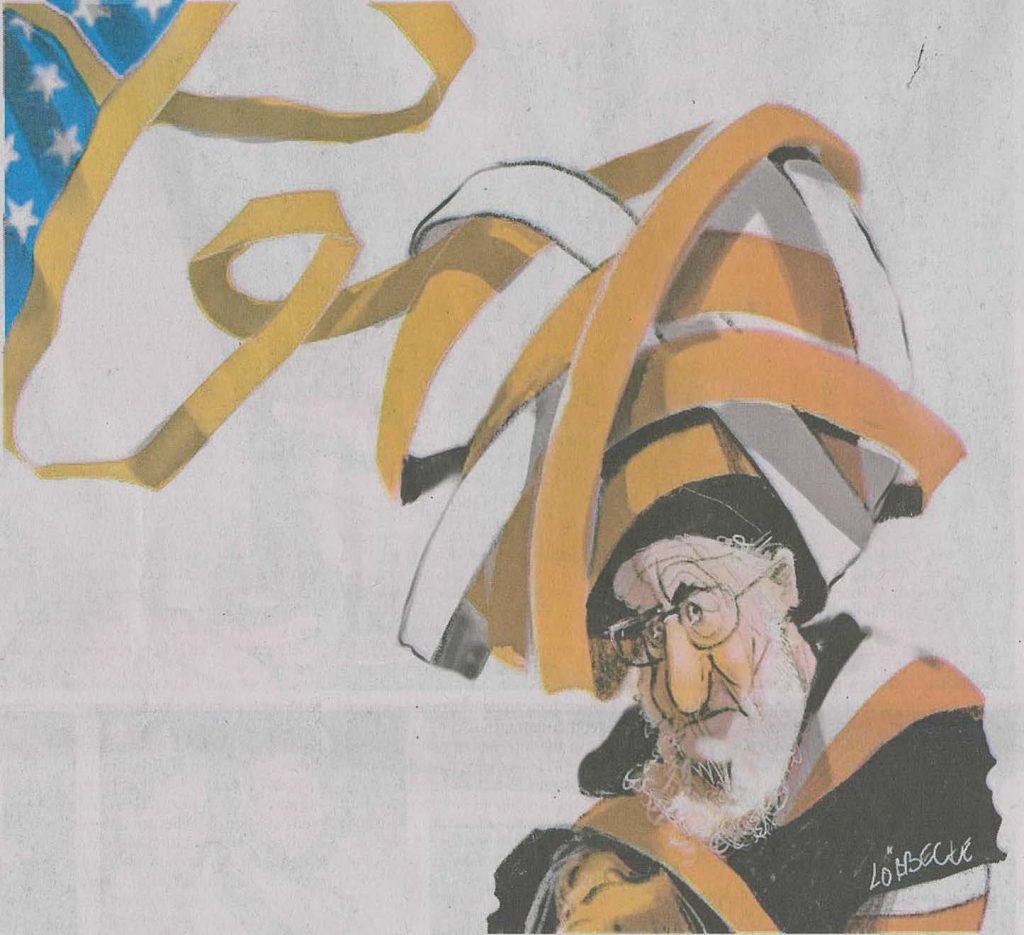IN THE MEDIA
Time to rein in state with deadly intent
July 6, 2018 | Colin Rubenstein

This article appeared in The Australian on July 6, 2018
With widespread, daily protests in the streets, and shouts of “death to the dictator” heard in Tehran, the Iranian regime is under pressure like seldom before.
These protests are primarily driven by economic issues — but Iran’s economic woes are likely to worsen as, in anticipation of renewed US sanctions, leading international companies are pulling out of dozens of signed agreements with Iran worth billions of dollars.
These developments significantly strengthen the case for the Trump administration’s new Iran strategy. After President Donald Trump’s May 8 announcement that he was withdrawing the US from the flawed Iran nuclear deal known as the Joint Comprehensive Plan of Action, on May 21 US Secretary of State Mike Pompeo outlined a comprehensive strategy to put pressure on Iran over its rogue behaviour across 12 issue areas, including missiles, cyber terror, support for destabilising activities in Iraq and Yemen and the Taliban in Afghanistan, funding of terror groups such as Hamas and Hezbollah, as well as ending ongoing uranium enrichment and other efforts to build nuclear weapons.
Pompeo specifically mentioned Australia as one of four countries he hoped would help support the new strategy. Recent events in Iran have only strengthened the case for Canberra to consider doing so in Australia’s national interest.
Renewed US sanctions haven’t even begun, yet their mere anticipation is having a domino effect across the Iranian economy.
Boeing backed away from the deal to supply more than 100 planes to Iran’s ageing air fleet, while Europe’s Airbus is expected to cancel its similar sale.
Car manufacturers Peugeot and Citroen’s joint ventures with Iran have been shut down. General Electric and Honeywell have decided not to ship desperately needed equipment and services to Iran’s vital energy sector. French oil majors Total and Engie, as well as BP, also have announced they are backing away from agreements with Iran.
The list goes on and on, lengthening daily. Things are only going to worsen for Iran. Next month, limitations on Iran’s access to the SWIFT international banking system will effectively isolate the Iranian economy from most global trade.
In November, more limitations will be imposed on Iran’s oil and energy exports, shipping and ports, and international financial transactions.
The anticipated effects of these measures have seen the value of the Iranian rial plummeting against all international currencies, despite the regime’s desperate efforts to try to contain the never-ending devaluation. In three months, the rial price of gold has tripled.
Meanwhile, the regime must be close to panic as the mullahs witness the intensifying wave of protest and unrest in recent weeks. Despite notoriously vicious and repressive police, there have been protests in hundreds of cities — including in the regime’s conservative heartland — which have led to dozens of deaths and the detention of thousands.
Furthermore, in a recent development, the merchants of the famous Tehran Bazaar joined the calls for freedom and went on a general strike. “Bazaaris” from other cities have joined in.
This is a significant event because during the 1979 Islamic revolution against the shah, it was the shift of the normally conservative merchants that signalled his rule was doomed.
The message of the protesters was clear, as they chanted “Palestine and Syria are reasons for our misery”, and “not Gaza, not Lebanon, my life only for Iran”. The Iranian people are angry at their corrupt and oppressive government, which stifles their freedom and fails in managing the crippled economy while spending at least an estimated $US16 billion ($21.6bn) annually on exporting terrorism and its war efforts in Syria.
Critics of the new US-Iran strategy have argued that it was hopelessly unrealistic. They argued that without consensus support of the international community and UN Security Council sanctions, the US alone would never be able to generate sufficient pressure to force the Iranian regime to make compromises it previously rejected.
The events of recent weeks strongly suggest otherwise. The Iranian regime is clearly under pressure as never before — including before the 2015 JCPOA deal.
Given this, countries, including Australia, that have continued to support the joint plan or are sceptical of reinstating sanctions, need to reconsider.
Is Australia’s national interest best served by clinging to the flawed JCPOA? Doing so would not only alienate and anger the US, our most important ally, but also almost all the Sunni Arab states, which see Iran and its allies as an existential threat and are fully on board with the new US approach.
Moreover, the plan has not been working.
It is not just that the agreement effectively permits Iran to break out to develop a nuclear bomb in 10 to 15 years, while also allowing it to continue to work on missiles to deliver those bombs in the meantime. It also provided the money to expand the destabilising efforts of the Islamic Revolutionary Guard Corps, responsible for spreading the revolution regionally through extensive, far-flung interventions in Syria, Yemen, Iraq, Afghanistan and Lebanon, and directly funding, training and arming banned terror groups such as Hezbollah and Hamas.
Astute policymakers will recognise the present unique opportunity to leverage the intense and growing economic pressure on Iranian regime decision-makers. Tehran’s mullahs clearly have overreached and left themselves vulnerable; now is the time to force them to pull back from their highly dangerous behaviour abroad or risk the continued viability of their revolutionary Islamic regime at home.
It is in Australia’s interest to seize this new opportunity to join international efforts to achieve a better outcome for the region, and indeed Iran’s people, by challenging and reversing Iran’s highly destabilising rogue behaviour and threatening regional hegemony aspirations.
Tags: Australasia, Australia, Iran, Middle East





